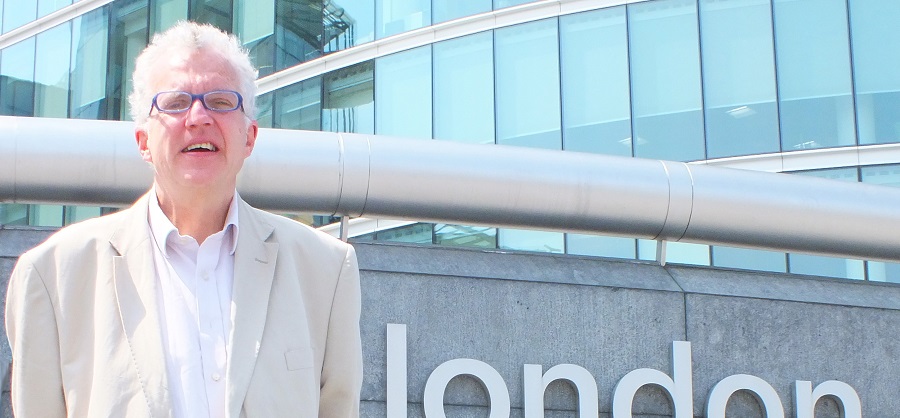The conventional wisdom on Philip Hammond was the overused political cliche that he was a “safe pair of hands”. The reality was rather different and the agenda he has left for his successor, Justine Greening, is fraught with difficulties.
Hammond played a canny game, by keeping both the railway and car lobbies on board. While his first statement in office was to promise to end Labour’s “war on the motorist”, a figment of the fertile imagination of Daily Mail leader writers, his review of Labour’s transport policy resulted in pursuing much the same agenda with, crucially, strong support for HS2, the new high-speed line that will run initially between London and Birmingham, and later in a Y shape out to both Leeds and Manchester.
He even backed the project with a promise to spend £1bn during the lifetime of this parliament on preparations for the line which will open in 2026 at the earliest. He supported, too, the decision to allow new carriages for London’s Thameslink to be built in Germany rather than in the UK, and he allowed through a multibillion contract to Hitachi for new trains on Intercity routes that is a complex PFI deal regarded as far too complex and expensive by the industry.
Support for HS2 is at best lukewarm in the Tory party, and in certain quarters, openly hostile. Indeed, at the fringe meeting I spoke at during the party’s recent conference in Manchester, it did not take long for delegates to start railing against the rail project even though the subject of the meeting was ending “the war on the motorist”.
Certainly Hammond’s reiterated commitment to HS2 earned him less applause on the conference floor than his notion of increasing the speed limit to 80mph on motorways. The change, though, was not to give boy racers the opportunity to do burn ups on the M1 but rather, he said, the idea should be supported because it would bring “hundreds of millions of pounds of net economic benefits” to the country and put us in, don’t groan, “the economic fast lane”.
This was typical Hammond. He was shadow chief secretary to the Treasury before the election and he is widely seen as the chancellor in waiting. There is good reason why Hammond’s appointment has elicited near-panic in the military about his spending plans: at the Department of Transport he demonstrated that his sole concern in decision-making is economic outcome. No other considerations were taken into account.
In this respect, an analysis of his claim about the 80mph policy is illuminating. What he did not say in announcing it is that the Transport Research Laboratory, which suggested there would be “net economic benefits” by increasing the speed limit, also rejected the idea because it would cause an extra 18 deaths per year. Moreover, nor did he mention the fact that the change would require the installation of 800 new camera systems to monitor average speed, when, in fact, speed cameras are seen by the Tories as instruments of the devil (after his appointment last May, he immediately scrapped central government support for cameras, forcing some authorities to remove them).
Nor did he make any mention of the environmental effects of raising the legal limit to 80mph, even though research has shown that there would be a 1.7% increase in both carbon dioxide and nitrogen oxides emissions. In the bizarre methodology of transport economics, however, the fact that millions of motorists would theoretically manage to get to their destinations four minutes per hour quicker (provided they dodged the resulting extra accidents), would outweigh all these negatives.
The case for HS2 is based on the same thinking. The benefits in the so-called “business case” are based on the notion that millions of people will make small-time savings, and these are ascribed a monetary value. There are flaws in the methodology, as many people will transfer from slower trains to the new fast ones, but since they work on them, the value of time savings is illusory. Such detail has so far being ignored as HS2 is the Tories’ big idea for transport expansion, given that a third runway at Heathrow has being ruled out. The recent suggestion from Hammond that there should be a high-speed rail line between Gatwick and Heathrow suggests panic in the Tory ranks over the lack of any promised new runway capacity in the south east.
Justine Greening therefore finds herself plunged from the obscurity of being No 3 in the Treasury into a complex and high-profile political maelstrom. From talking to people who have had constituency dealings with her, she is sharp, good at detail and her record suggests that she is more interested in both public transport and the environment than her predecessor, who would use his ministerial car for the short hop from his office to the Commons and admitted he was too scared to cycle in London. She has even been photographed turning up to a meeting on a bicycle.
The question is whether that translates into any policy change. As MP for Putney, under the Heathrow flight path, she will clearly not countenance any change on the runway policy and support for HS2 is a bedrock of Tory policy, even if, under closer scrutiny, the figures do not add up. As a woman, she may be less interested in allowing boys to speed faster on motorways and scrapping the 80mph idea would be an easy way to demonstrate that she is a politician with a wider perspective than simply being driven by narrow economic concerns.
She may, too, be concerned that cuts in road safety spending may lead to a rise in deaths on the road. While it would be a mistake to expect radical changes in policy, there may well be a change in tone, which is quite possibly why Cameron promoted such a junior minister into the cabinet.
